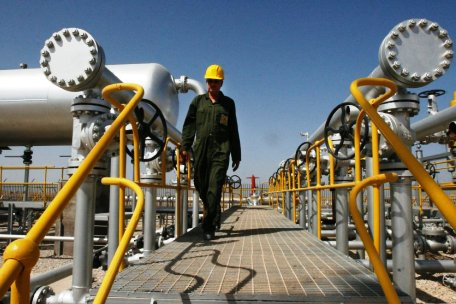Tehran Must Surprise the West

On Monday, Jan 23rd, seven of the European Union’s foreign ministers gathered in Brussels to approve the previous talks regarding sanctions on Iran’s banking system and precious metals. IRD discusses Iran’s reaction to Europe’s decision with Jalal Sadatiyan.
IRD: How do you evaluate the recent European sanctions?
JS: Clearly, sanctions on Iran have been intensified gradually during the past years, and it is not difficult to recognize that they will certainly make the country’s situation more difficult. Iran is well aware of these problems. The fact that Iran has warned of a strong reaction to these sanctions shows the severity of the situation. Iran has called the Danish ambassador and has warned Europe of their actions against the country. It can be speculated that the EU’s recent sanctions on Iran’s Central Bank and an embargo of its oil is an escalation of pressures on Iran.
IRD: How much of Iran’s oil is purchased by Europe? And how are these sanctions affecting Iran’s international relations? Can Iran find alternative markets for its oil?
JS: Europe buys 18% of Iran’s oil, most of it by Italy and Spain. Iran’s oil ministry has announced that it is not concerned about Europe’s embargo and it can easily replace the European market. Perhaps new markets can be found in Asian countries, which currently buy 65% of Iran’s oil-- making them Iran’s biggest customer. China is currently our biggest purchaser at 22%. Japan, India and South Korea follow with 14, 30 and 10% respectively. Turkey and South Africa are also amongst Iran’s customers, buying less than 10% of Iran’s oil.
Although China has changed policy by reducing its oil purchases from Iran and has diversified its suppliers, it has resisted imposing sanctions or an embargo on Iran and it insists on the sanctions’ ineffectiveness. Japan however, may give in under Western pressure and join in on the sanctions on Iran. India has made a deal with China in paying Iran for its oil, while South Korea has not declared its position yet.
Iran has fixed its hopes on the Far East as its main oil customers. Of course, due to limitations on Iran’s banking activities, all of its foreign trade will be affected negatively and Iran will have to under- sell its products and resources.
IRD: The Danish ambassador has been summoned in Tehran in protest of the latest European sanctions. How appropriate and proportionate was Iran’s response?
JS: With the Netherlands being currently the president of the EU, summoning its ambassador in Tehran was the least that Iran could do. Surely a threat lies within Iran’s decision to call the Danish ambassador, which will attract Europe’s attention. We must only wait to see the consequences of Europe’s sanctions and Iran’s reaction.
IRD: Since sanctions on Iran’s oil have become inevitable; some politicians have expressed that Iran has ought to terminate its oil trade immediately. Is this possible?
JS: This would be an interesting response from Iran, putting it one step ahead in the game. Instead of waiting for the Europeans to one by one revoke contracts, Iran could have the upper hand and take the initiative in scrapping these contracts. This however, depends on Iran’s foreign currency reserves. If sufficient, Iran could immediately void contracts with Europe and act on finding new partners for its oil. This would be a fitting response to European’s sanction.
How would the oil market react to such response?
JS: Certainty, this would result in an upsurge in global oil prices, causing concern for the West. The Europeans were aware of the fact the embargoing Iran’s oil would cause shortages in their market and therefore they have introduced a 6 month deadline to this process. This would allow the Europeans and their allies to find a substitute for Iran’s oil. If however, Iran decides to withdraw its oil from the European market immediately, the higher oil prices in the market will damage the European economies. Yet, this is subject to sufficient available capital in Iran’s foreign currency reserves.

